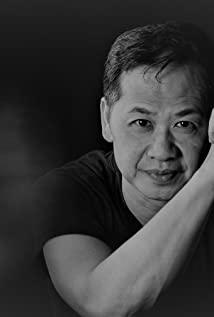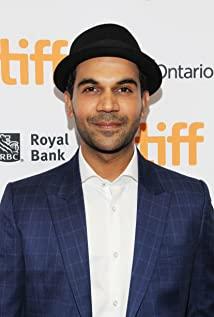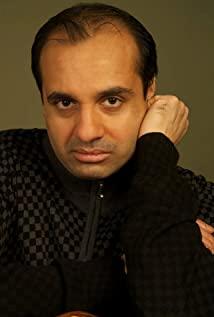The story of "White Tiger" seems very old-fashioned: the revenge of the people at the bottom. A low-caste servant who was abused, bullied, and exploited, killed his master after awakening, and finally got the life he wanted.
Is it really?
Although the host Ashok in the film is not a human rights fighter, he is undoubtedly a "good" host compared to his brother and father. He studied in the United States, and thus learned the Western ideas of freedom and equality. He would take the initiative to take off his headphones in the village to listen to the children with runny noses, and he would be a friend of his servants, and he would marry a Christian wife-everything shows his "anti-traditional" and "new thoughts" ".
But on the other hand, certain "Indian" colors on him are hard to get rid of. In order to help the family business to evade taxes, he is willing to do the dirty work of bribing politicians; in the days when his wife is not by his side, he can't resist the enthusiasm and spend the spring evening with the dusty women.
On the surface, he treats the protagonist Baram equally and repeatedly refuses Baram to open the door for himself. It was the same him who unceremoniously kicked Baram to the ground when he was down. As a result, when Baram was framed and framed, and may be ruined for a lifetime from now on, he chose-silence.
He is always loyal to his family like Mike in "The Godfather", but like Juehui in "Home", he has an aversion to the various systems that maintain the object of "home".
In contrast, the protagonist Baram is even more extraordinary. He is smart and clever, not only has successfully won a job as a driver for himself, but also won the owner's love and trust with his superb emotional intelligence.
During the day, he is a loyal servant; after removing his mask at night, he is a young man full of pain and confusion about his situation. Unlike the servants who are already almost numb to the pain, he will feel pain and desperately want to change himself because of a word from the master. Although his poor knowledge is not enough to make him realize what is suppressing him, he still has a heart of "breaking through the chicken coop".
There is no more dangerous combination of a compassionate master and an ambitious servant. In the fateful arrangement, a big drama started like this.
The caste system in India has always been criticized. Since the Aryans invaded India in 1500 BC, India has been divided into several distinct and very divided classes. The Indian castes we know today are called "Varna": Brahmans composed of monks and nobles, Kshatriya in charge of military and politics, Vaishyas for ordinary people in business, and Sudras as servants and craftsmen. And those "untouchables" or "untouchables" who cannot even be included in the above four categories.
The fundamental logic of this caste classification system lies in the difference in the degree of "cleanness". Indian culture contains a series of “clean and unclean” regulations, such as the twelve kinds of unclean objects (such as feces, saliva, etc.) on people regulated by the Code of Manu*, or death of relatives, female births, etc. Is considered "unclean". Those who are closer to "unclean" things, have closer contact, and even those who are engaged in related industries every day, are therefore demoted to a lower status group; in contrast, those who engage in religious activities and have a superior living environment, Its status has therefore been fixed.
Simply put: the cleaner the higher the status, and the higher the status, the cleaner. On the contrary, the people at the bottom can almost never turn around. This infinite loop logic also explains why the caste problem in India has continued for hundreds of years, even though the system was originally used to distinguish different occupations. For example, the protagonist Baram’s surname "Halawai" actually refers to the sugar maker.
At the same time, since India has never successfully implemented land reform, most Indian farmers do not have their own land. Their identities are essentially landlord’s tenant farmers or “contract workers”, and there is no other way out except to endure exploitation.
Back to our protagonist Baram. Wherever it is poor, there will occasionally be a genius, and he is the most prominent one. Not only is the speed of learning new knowledge extremely fast, but the power of observation is unparalleled. As if from the moment he was born, he was destined to become that "one-generation creature" white tiger.
But the ruthless reality shattered his fantasy. The low-level Indians have no chance to stand up, and the little money they earn will be periodically plundered by the landlords. Not only is the daily food not filling my stomach, I ran to the hospital when I was ill, and there is no doctor, I just changed my place and waited for death. When the protagonist's father contracted tuberculosis, he died in this despair. Ironically, the protagonist discovered that his father's feet were still trembling slightly when he was cremated-the pillar of the family seemed to be struggling weakly after his death. This also seems to imply the ending of all of them: alive, but as if being burned in hell. Individuals have no right to choose and resist, and the family's decision is everything.
At this moment, the protagonist discovers his own destiny, as if trapped in a "chicken coop". The chickens in the chicken coop watched their compatriots being slaughtered, just like servants who were severely exploited by their masters. But even though their lives are so miserable, they didn't resist at all, and didn't even think of this idea.
Just like that sentence: "The shackles on the body are easy to remove, but the shackles in the heart are hard to remove."
But in fact, not all issues need to be "irritated." As the people at the bottom of India, the difficulty for them to make a living is really beyond imagination. The ruthlessly exploited landlord, the natural disasters that strike from time to time... From a peasant to a servant, or even to turn over in a sense. And once they became servants, they could no longer get rid of this identity. Fortunate servants can work until they are in their 50s and 60s to "gloriously retire" and use the saved money to buy a dilapidated shack to end their lives; those servants who unfortunately made mistakes and were kicked off by their masters, waiting for their ending only- die.
In this case, Baram’s dream is to become a servant of the landlord’s house. With his good eloquence, he not only persuaded the greedy grandmother to put out a "large sum" of 300 rubles for him to learn the car, but also praised the landlord as great as Mahatma Gandhi. He finally got his dream job-as a driver for the landlord's young son. For the first time, he put on a neat uniform and had a complete roof over his head when he slept.
But his wish is more than that. As a servant, he hopes to be favored and trusted by his master. To this end, he tried everything possible.
Just like the Ji Woo family in "Parasite", he squeezed away the original driver No. 1 through an informant.
He carefully studied every word that popped out of the host and his wife, so as to pick up the topic at an appropriate time.
He also remembered the owner's hobbies, what he liked and what he didn't like.
He succeeded. Not only did he get the "honour" to drive the landlord's family to the capital Delhi, he also maintained a good relationship with the owner, Ashok and Pingji. At a certain moment, he seemed to really surpass the category of "servant" and became a friend of the two.
He even refused to intervene with other servants. He also wears that ridiculous blue uniform all the time, trying to do his duty as a "servant".
But the dream will always wake up. Ping Ji and Ashok both drank too much alcohol at the birthday party. Ping Ji rushed to drive and killed a child who was walking on the road in the middle of the night.
It is worth noting that Baram was the calmest one after the accident. He stopped the collapsed Ping Ji and the dazed Ashok, and squeezed them into the car and quickly fled the scene. For him, on the one hand, he is a nameless, hapless and poor child, on the other hand, the host and his wife who "appreciates" him. He almost instinctively made a decision in favor of the latter.
Faithful protector? More likely, he was just saving himself and the long-term meal ticket that was at stake because of the owner's stupidity. As for the kid who died tragically on the street? Let him go. People at the bottom have never known how many more tragic stories have been witnessed.
Until he cleaned the blood on the car, he still thought that he had successfully fulfilled the "duty" of a servant.
But does the so-called "duty" really have boundaries? The local owner asked him to top the bag and admitted that it was the moment he killed the little girl that he realized for the first time that he was just a throwaway tool. Ashok, who was regarded as a "friend" by himself, only complained a few words, and he lost the "principle" and "human rights" that he used to talk about every day under the "forced by the situation."
At that moment, he did not express any objection, but slowly put on the habitual smile. It's just that his eyes are full of tears, and there are unwillingness, doubts, and pain in these tears.
Although in the end the landlord’s relationship with the police station suppressed the incident, Baram’s confession was still retained by the landlord’s eldest son. Returning to the landlord's house again, Baram was greeted not by politeness or commendation, but by even more severe abuse and slavery. Pinghime, who was educated in the United States, finally couldn't bear this kind of trampling on the personality of others, and returned to the United States angrily.
The only person who could truly be equal to him in personality also left, and Baram was truly desperate at this time.
Back to the high-end apartment, he was questioned again by the angry Ashok grabbing his neck. His suppressed anger couldn't find its way out, and finally broke out, and he pushed Ashok away. The two who calmed down all of a sudden looked at each other. After a while, Ashok said to the embarrassed Baram: "I really hope they sent you to jail."
The offender was not Baram, not the servant, but the master. But Ashok said he wanted to send Baram to jail. At this moment, his true thoughts were exposed. He has never been a "human rights fighter" or "egalitarian". In his bones, he is still the rich young man in India; in his bones, he is still full of discrimination against "bad breeds" like Baram. This is why Pinghime and he will not follow the same path in the end: several years of American education packaged his appearance, but did not completely reshape his soul.
For Baram, the fear at this time is probably greater than all other emotions. He could yell at people of the same class or lower status arbitrarily before, but he had never even tried to challenge the upper class. He knocked down Ashok, as if knocked down a heavy wall in his heart. From this moment on, his heart was as if Pandora's Box had been opened and could no longer be taken back.
After a short adjustment, he came back and found that Ashok was already drunk in alcohol. So he started to change everything according to his own ideas: put on more stylish clothes, comb his hair shiny and polished. He took care of Ashok meticulously and "advised him" as if he was already his prey. At this time, Baram had a new illusion: to support Ashok, maybe one day he can really start a career with him.
The arrival of the landlord's eldest son, Ashok's brother, once again completely shattered Baram's plan. Baram discovered that he was nothing compared to Ashok's family. He began to blacken completely, learned all the tricks of the driver to deceive the owner, and went further and further on the road of resistance.
At a certain moment, he and Ashok may have returned to that time full of false "friendship." But Baram at this time had already understood that Ashok was just drinking. When alcohol works, they are friends; but tomorrow after Ashok soaks up, they will still return to the master-servant relationship.
The arrival of his nephew stimulated Baram even more. The grandmother mentioned in her family book about marrying him, but Baram couldn't accept it. He has long wanted to make a clean break with his poor and controlled hometown, just as he looked into the distance with his dirty schoolbag years ago, the scholarship he could never get and the future he could never get.
He smashed an empty black bottle he picked up from the garbage dump, and hid the bottle with a sharp stubble under the seat of the cab. Although the glass bottle is not sharp, he is not as strong as Ashok. But he knew that when Ashok got in the car, he would still be the ignorant Ashok; but Baram was no longer the cowardly servant, but a white tiger that "only one would appear in a generation" .
At the end of the film, Baram used the stolen money to open a taxi company, earning money every day. He also changed his name to Ashok's name, as if reborn. He spoke loudly to the camera about his secrets of success, and then walked away, leaving a group of taxi drivers with dull expressions looking blankly at the camera.
Not everyone has the opportunity to stand up. Just like not every servant is Baram, not every master is Ashok. Most of the people at the bottom of India are still suffering from poverty, darkness, and no hope. Perhaps, another "Balam" also thought about resisting at some point, but after all, it was swallowed in by this cruel society, and there were no bones left.
More people are already deprived of the ability to think and betray. This is why:
Most people are still obedient and rebellious. There is only one story in an era.
India is a magical country. In this country, there are countless stories that we can hardly understand. For example, in this new crown epidemic, the Indian government's magical operation; and the Indian caste system and the "ganga water" stalk that has always been used as a joke. But when you take a closer look, you will find that all these seemingly weird things have complex and far-reaching historical factors.
"White Tiger" is an Indian film, but its traditional narrative structure is effective. From the flashback opening to create suspense, to the protagonist’s monologue, and then to the 180° turn of the protagonist’s thoughts. The screenwriter completed the character’s episodes in a short period of more than two hours. Quietly, it also portrays an Indian social landscape full of black humor.
At the same time, the visual effects of the movie still maintain the high quality produced by Netflix. There are two scenes that impressed me the most. One was the scene where Baram was begging a beggar woman on the street. The chaotic street scene seemed to put you on the most crowded and noisy street in Delhi; the other was Ashok's arrival at Baram House. In the basement, when he lifted the blanket, the dust was flying, and under the dim incandescent light, it couldn't help making people cry out for truth.
The entire film is adapted from the work of the same name "White Tiger" by Indian writer Aravand Adiga. This novel is also the author's debut, and it won the Man Booker Award (the original Booker Award) in 2008. The film is very restored to the original, and the content of the email to the prime minister is included in the original (although I think it is far-fetched). In the original, Prime Minister W is about to sharpen the "World Technology and Outsourcing Capital" Bangalore, so the protagonist Baram is " A thinker and entrepreneur" wrote a letter.
Of course, the short two hours of the film cannot restore all the essence of the original. For example, the portrayal of Indian democracy in the film is slightly one-sided, only showing the content of the landlord’s son rushing to bribe officials. In addition, the film also tried to reflect the complex and contradictory attitudes of Indians towards religion (Islam, Christianity), although it was not very successful.
Lu Jiande pointed out that the popularity of black humorous novels like "White Tiger" in India actually reflects the maturity and confidence of Indians in their mentality. In recent years, India's title of "World Office" has become more and more popular, and its population and GDP are also growing rapidly. However, domestically, most reports on India still focus on the backward and chaotic side of India. As an audience, you need to always pay attention to the fact that the movie reflects only one-sided reality, not the whole truth.
As Baram said: "This century belongs to the brown-skinned people and the yellow-skinned people. Leave the rest to the gods to save them."
View more about The White Tiger reviews











